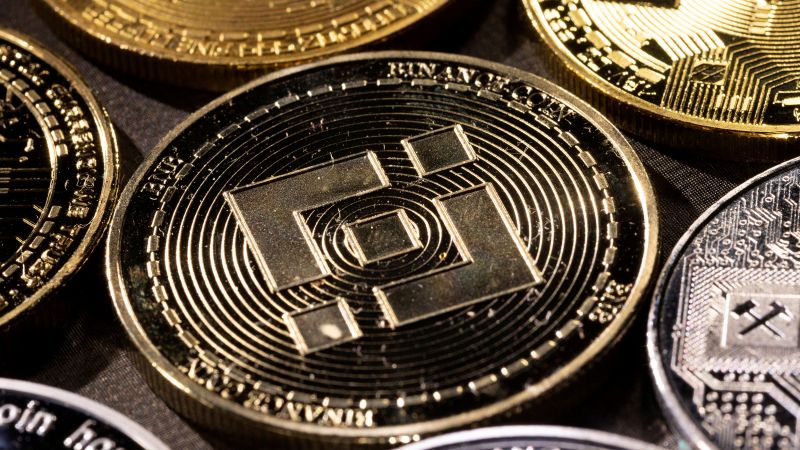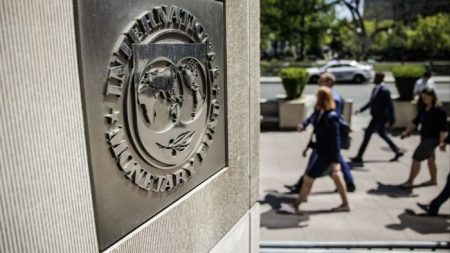Editor’s Note: A version of this story appeared in CNN Business’ Nightcap newsletter. To get it in your inbox, sign up for free, here.
Back-to-back lawsuits against two of the world’s biggest crypto enterprises are sending a chill through the fragile ecosystem of digital assets in the United States.
In the span of 24 hours, the Securities and Exchange Commission lobbed two scathing complaints against Binance and Coinbase, saying they operated illegal securities exchanges in the United States. The moves mark a serious escalation of the SEC’s campaign to rein in an industry that has for years operated in a regulatory gray zone.
Coinbase’s stock got hammered Tuesday, falling more than 12%, and Binance saw investors yank nearly $800 million from its platform in the span of 24 hours.
The lawsuits set the stage for litigation that could take months, if not years, to resolve.
In the meantime, many US investors/believers in digital assets are in limbo. The big question: Is there anywhere safe to trade crypto?
The short answer: Probably not. At least for now.
“A decent rule of thumb,” Bloomberg columnist Matt Levine has written, is that “all cryptocurrency exchanges are doing crimes, and if you’re lucky your exchange is doing only process crimes.”
In other words, as far as the SEC — the top Wall Street regulator — is concerned, just about any crypto exchange operating in the United States is illegal, because the regulator considers virtually all crypto tokens (minus bitcoin, which I’ll get into later) as securities. And you can’t be in the securities business without a license.
Of course, Coinbase argues (reasonably) that the SEC already approved its business model when the regulator OK’d it to go public in 2021, and that the company has tried to work with regulators to ensure it is in compliance with the law.
“There is no path to ‘come in and register’ — we tried, repeatedly,” tweeted Coinbase CEO Brian Armstrong on Tuesday. “Instead of publishing a clear rule book, the SEC has taken a regulation by enforcement approach … So if we need to avail ourselves of the courts to get clarity, so be it.”
The lack of regulatory clarity is a common complaint among crypto firms, which argue that the United States is pushing the industry overseas, and ultimately ceding authority to foreign regulators that have established clearer guidelines.
And that may be true, but Gary Gensler, the outspoken crypto-skeptic and top cop at the SEC, doesn’t seem to care.
“Look, we don’t need more digital currency,” Gensler told CNBC on Tuesday. “We already have digital currency: It’s called the US dollar. It’s called the euro or it’s called the yen; they’re all digital right now. We already have digital investments.”
Gensler’s message to investors: The SEC is here for you.
“The investing public has the benefit of US securities laws. Crypto should be no different, and these platforms, these intermediaries, need to come into compliance,” he said.
The SEC’s double whammy of civil cases lays the groundwork for litigation, and, ultimately, judicial review that could compel Congress to act.
“Our view continues to be that only Congress can end the policy chaos that has surrounded crypto for the past year,” wrote analysts at TD Cowen. “It is why this litigation may not be a positive for Coinbase, but it should be a positive for the crypto space. It should get crypto closer to final rules of the road regardless of how the judge rules.”
In the meantime, US investors need to be very careful about where they trade in cryptos, said Reena Aggarwal, director of Georgetown University’s Psaros Center for Financial Markets and Policy. “US regulators are going aggressively after crypto firms, I don’t expect this to change.”
Bitcoin and ether futures traded on the Chicago Mercantile Exchange, Aggarwal said, are a safe bet because the exchange is a regulated entity. “There are also ETFs linked to bitcoin futures offered by traditional financial firms.”
Interestingly, bitcoin, the world’s first and most popular cryptocurrency, was surging Tuesday despite the regulatory crackdown. That’s partly because the SEC views the virtual currency as a commodity under the purview of the CFTC.
After dropping 6% Monday, bitcoin rebounded Tuesday, trading above $27,000 in the afternoon.
Many crypto investors appear to be abandoning so-called “alt-coins” and sticking with the relatively more reliable OG virtual currency, wrote Ed Moya, a senior market analyst with Oanda.
Bottom line: “The SEC looks like it is playing Whac-A-Mole with crypto exchanges,” Moya wrote. Because of that, crypto investors will have to decide whether they are confident that the offerings on various exchanges will remain available to trade.
It’s far from a sure thing. Then again, crypto trading — a high-risk activity under the best of circumstances — has always required an iron stomach.
Enjoying Nightcap? Sign up and you’ll get all of this, plus some other funny stuff we liked on the internet, in your inbox every night. (OK, most nights — we believe in a four-day work week around here.)
Read the full article here













